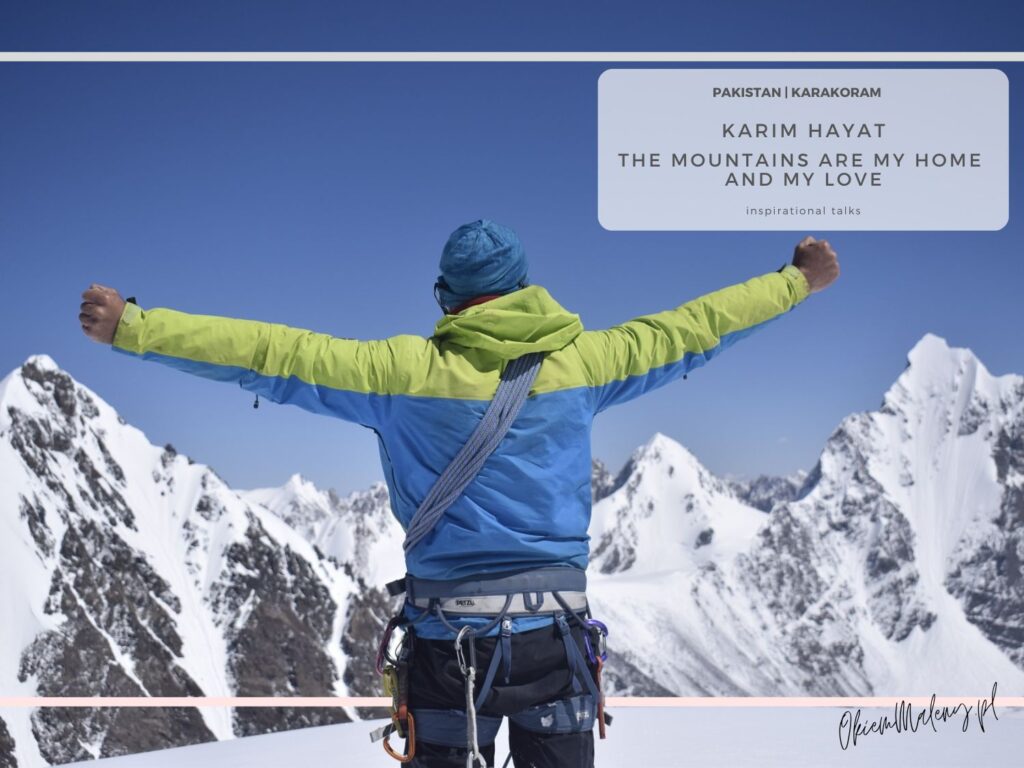
Karim Hayat – Pakistan Mountains Expert
Today, the special guest of Malena’s talks will be Karim Hayat. Climber, Broad Peak summiter, Karakoram mountain guide and owner of Pakistan Mountains Expert – tourist agency. (polska wersja)
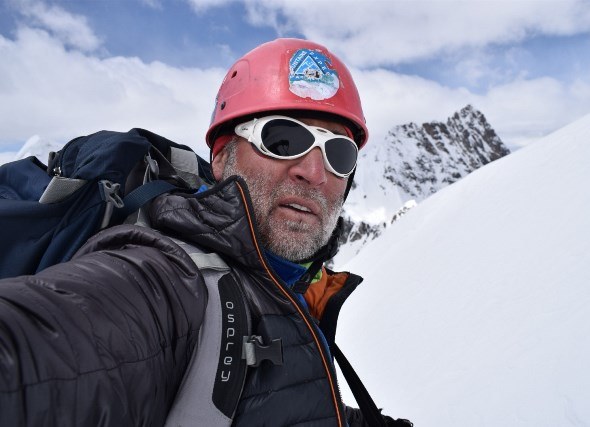
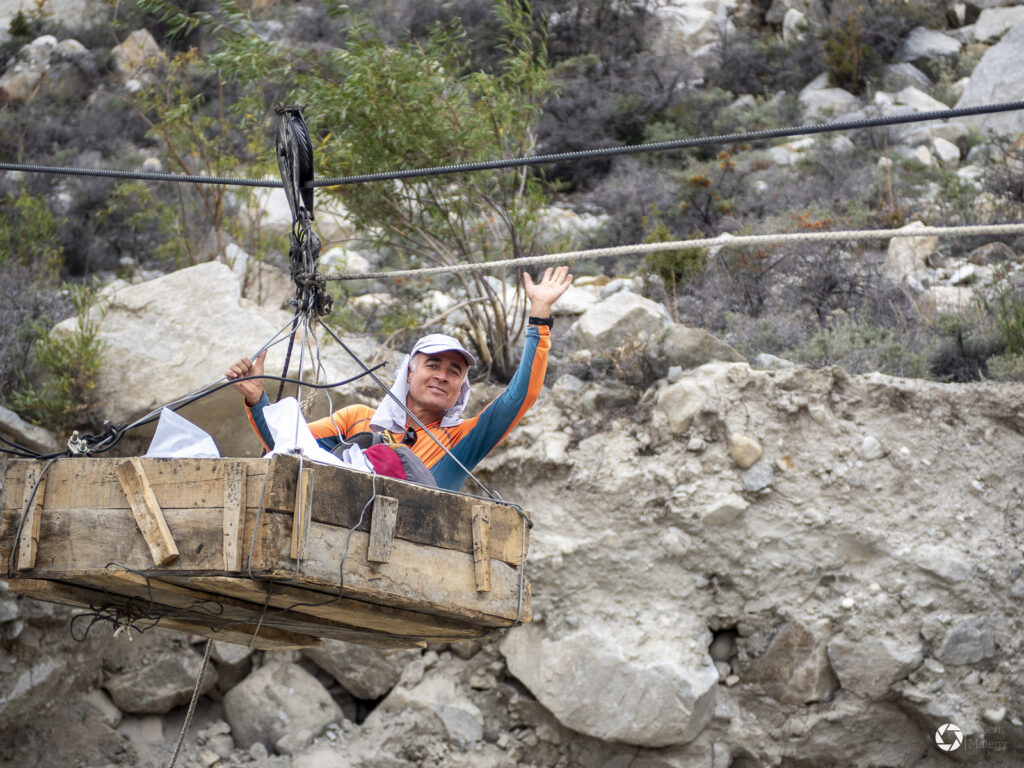
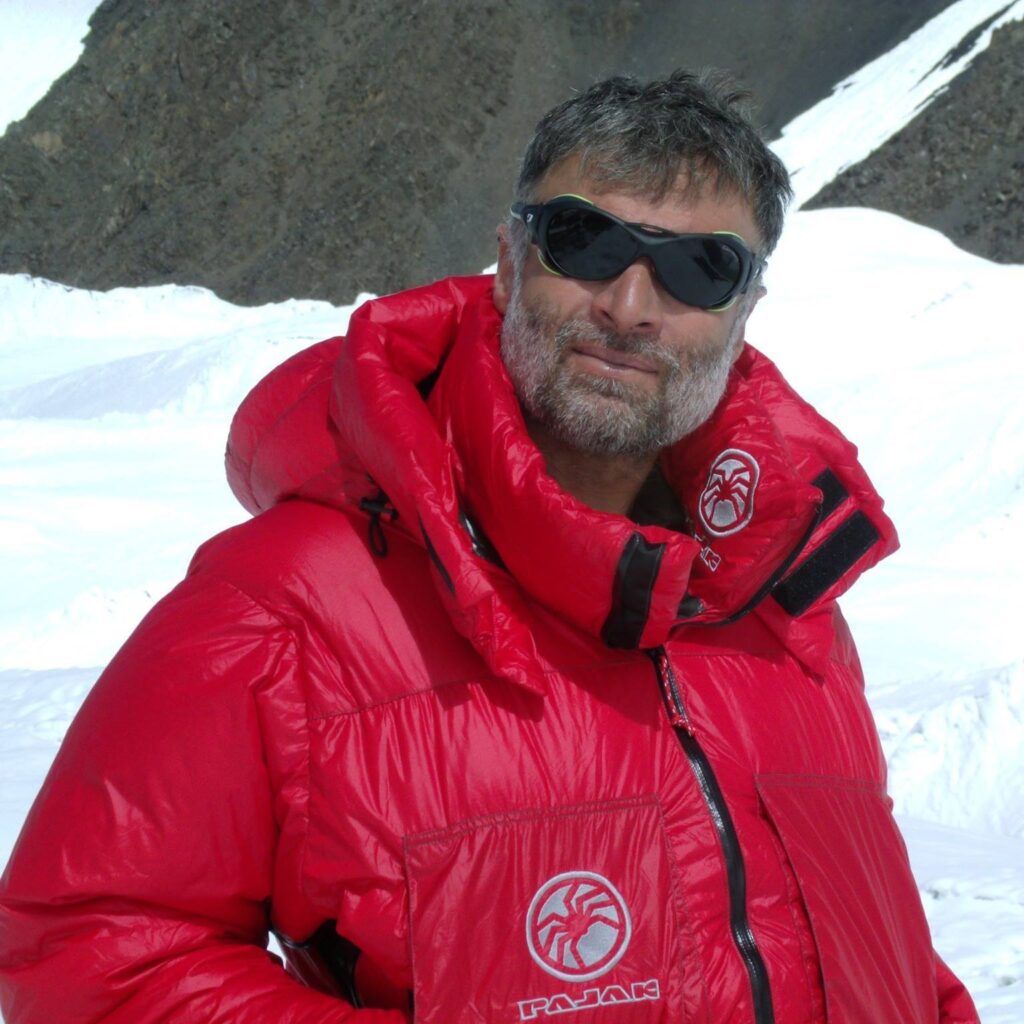
I felt like a small creature among all these giants of Karakorum
MMK: Hi Karim, I’m glad you agreed to the interview. How do you do?
KH: I’m doing good. So many questions… These are look like the last ones I answered after returning from a Polish Winter Broad Peak Expedition.
MMK: You were the first Hunza’s citizens to reach 8.000 without oxygen. Your Mountain is Broad Peak. How does a person who stands on the top of an eight-thousander and has the whole world at his feet feel?
KH: My dream was to climb an eight-thousander as a mountain guide and tour operator. In Pakistan, especially in the circle of guides, there is not much interest in climbing the peaks, the guides just lead the trekking groups to the base camps and that’s it.
In 2014, I organized a small expedition to Broad Peak, called a memorial expedition. We were supported by by Late Tomek Kowalski parents, he gave his life for this peak in the winter of 2013.
Exceeding the height of 7900 m above sea level I felt an extraordinary happiness bursting through me. But that doesn’t mean it was easy – it was really hard, I took a few steps and rested, breathing like a running dog. The weather was perfect for this mission, there were over 30 climbers besides me. When we reached to the sadle 7900m, me and my friend boiled water and rested for a long time at the altitude of 7900 m. When I climbed to Rocky Summit, I saw a Romanian climber, he was taking rest, I offered him some water. Few moments later, he headed towards the top. He was approaching the top. it was unfortunate, I stand up, left my harness and unnecessary stuff to be light and fast, decided to climb to the top before him. It was like a high-altitude marathon, I won it and I was on top before him. It was the best day of my life. I was standing above 8040m, I felt like a small creature among all these giants of Karakorum. I saw Nanga Parbat far south.
During the descent I felt extremely exhausted, my body was trying to force me to rest and nap. If I had succumbed to it and fallen asleep, I would have stayed there forever. I didn’t take long rests; I continued my descent. Below Rocky Summit I met my friend Naseer. We arrived to Camp 3 after 10:00 PM
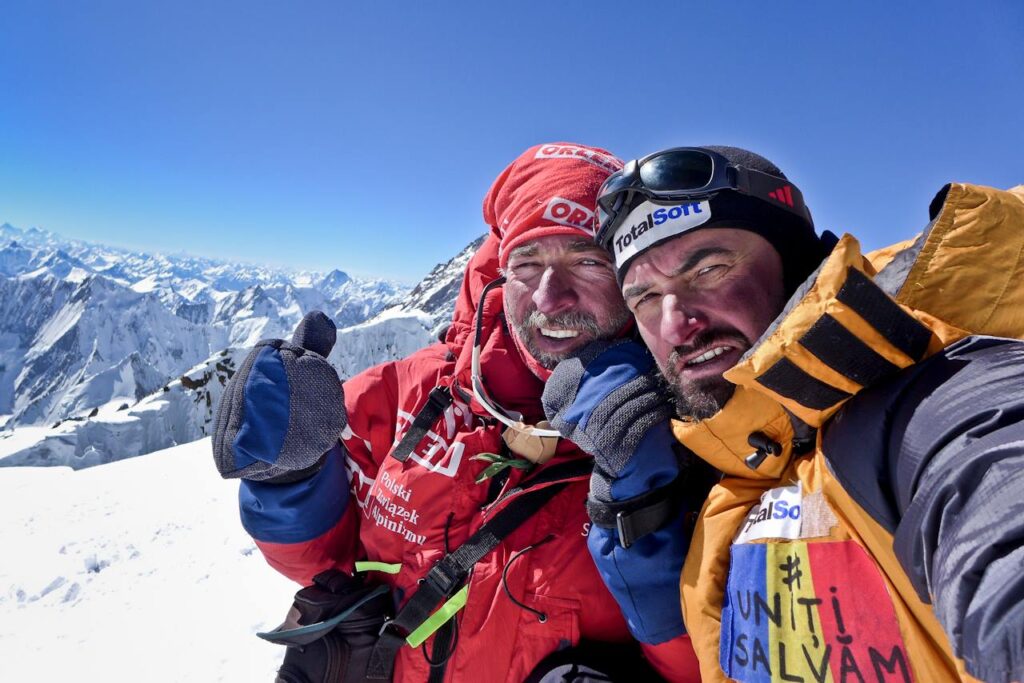
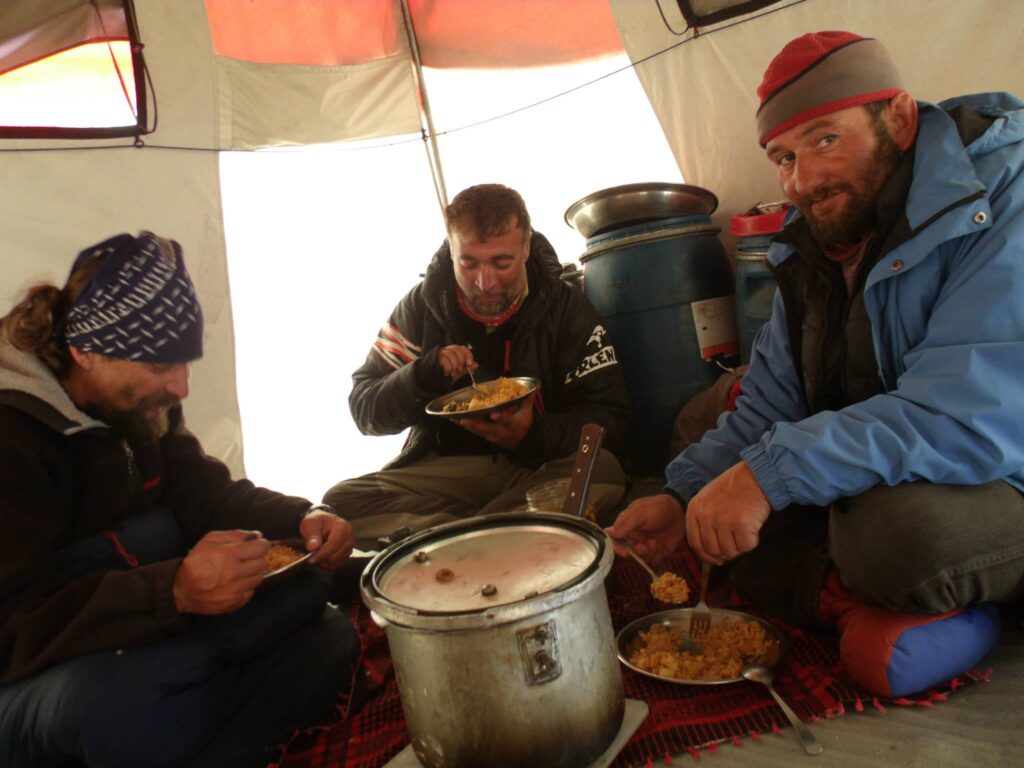
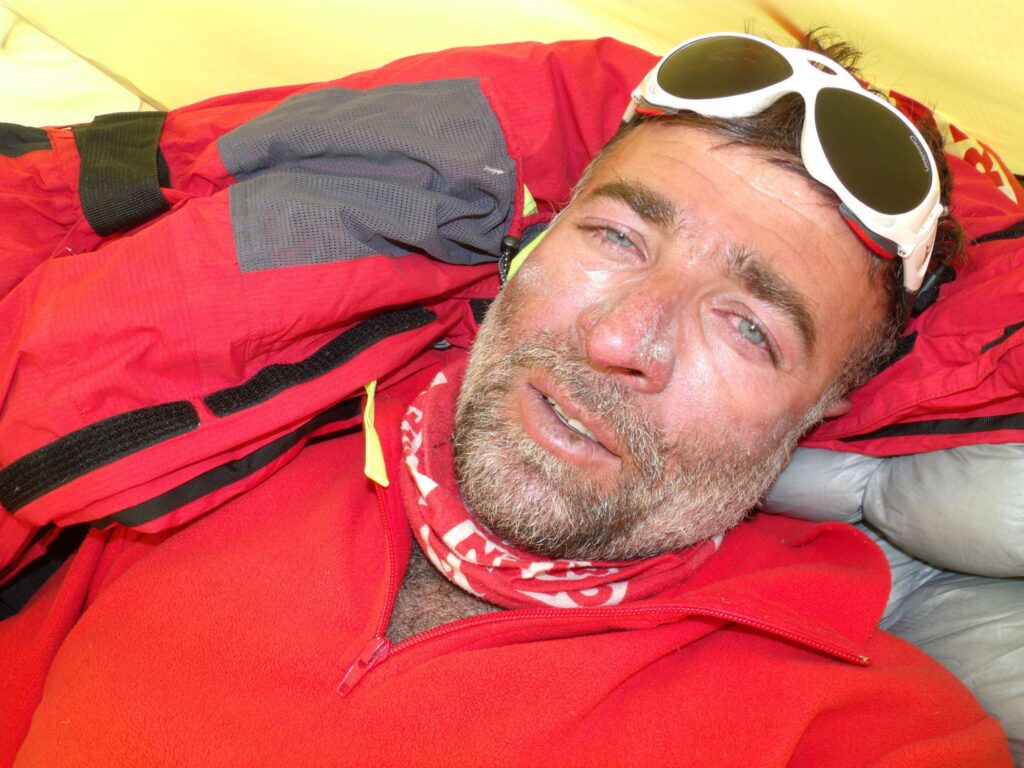
People here think I’m not exactly a normal person.
MMK: And the people of Hunza and your family? Did they prepare some special welcome party? What do they think about your passion?
KH: We were welcomed by the kitchen staff and some friends at the base, it was a nice feeling. People here think I’m not exactly a normal person. And I guess I’m not an ordinary person, I’m crazy for adventures, I don’t like to be laze, sit in the office and operate tours from a distance, I never even thought about it. I love leading tours, I like people who come from the west and they like it here. When my guests come home and plan to visit Pakistan again, they ask me: Karim, will you be our guide in the mountains or someone else? If you lead us, we shall join you! These are compliments, I feel proud then!
MMK: When did you start climbing and what was the beginning od your adventure with the mountains?
KH: When I was a 9th-10th grade student, I worked as a porter in Hunza, then I worked as a high-altitude porter to continue my studies. My father was a soldier, his pension was not enough for our needs.
In 2000, I started climbing a year as a professional. I did Advance Mountaineering Diploma in Nepal Mountaineering Association. I was the only person who had the highest marks. This achievement made me confident.
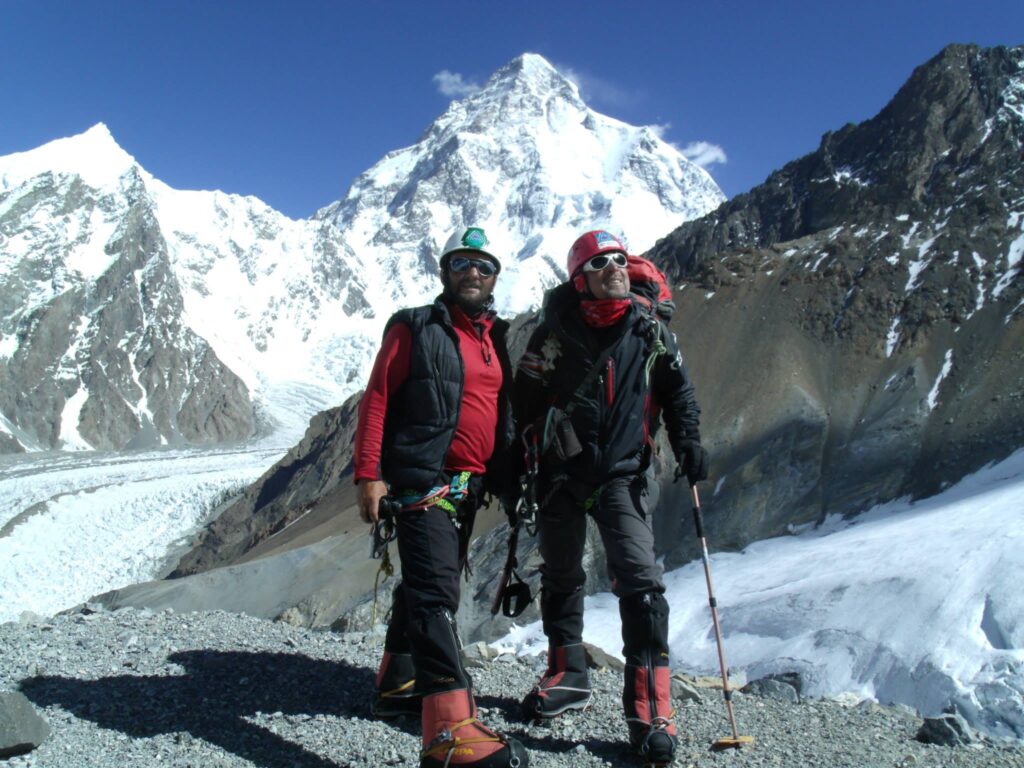
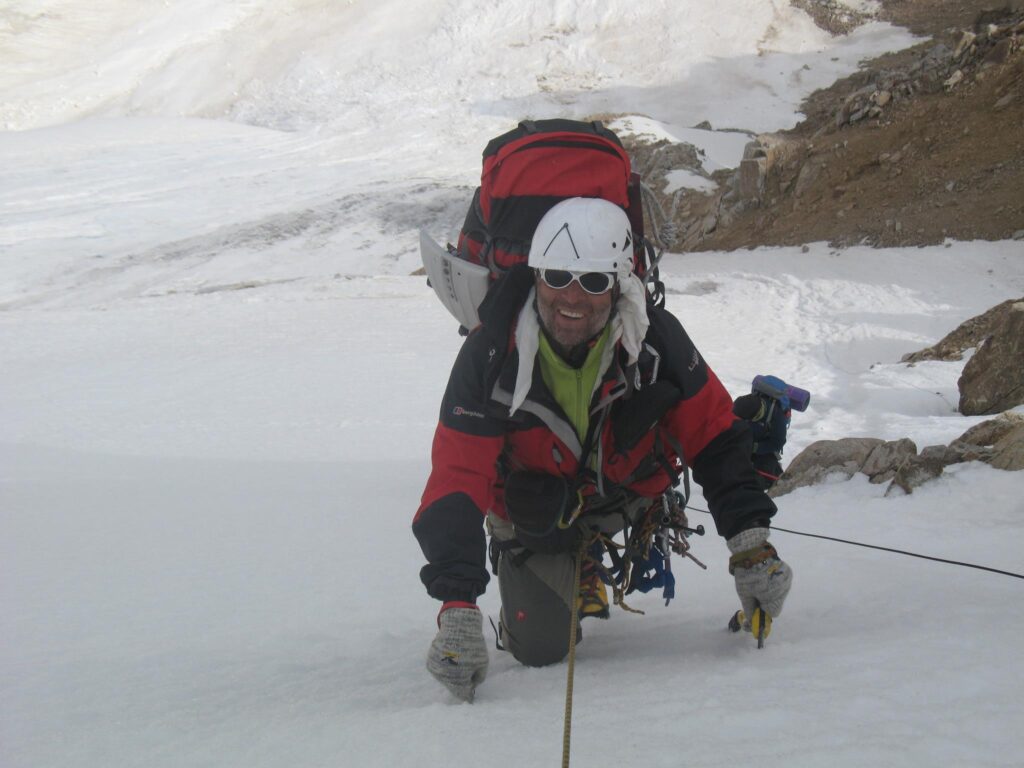
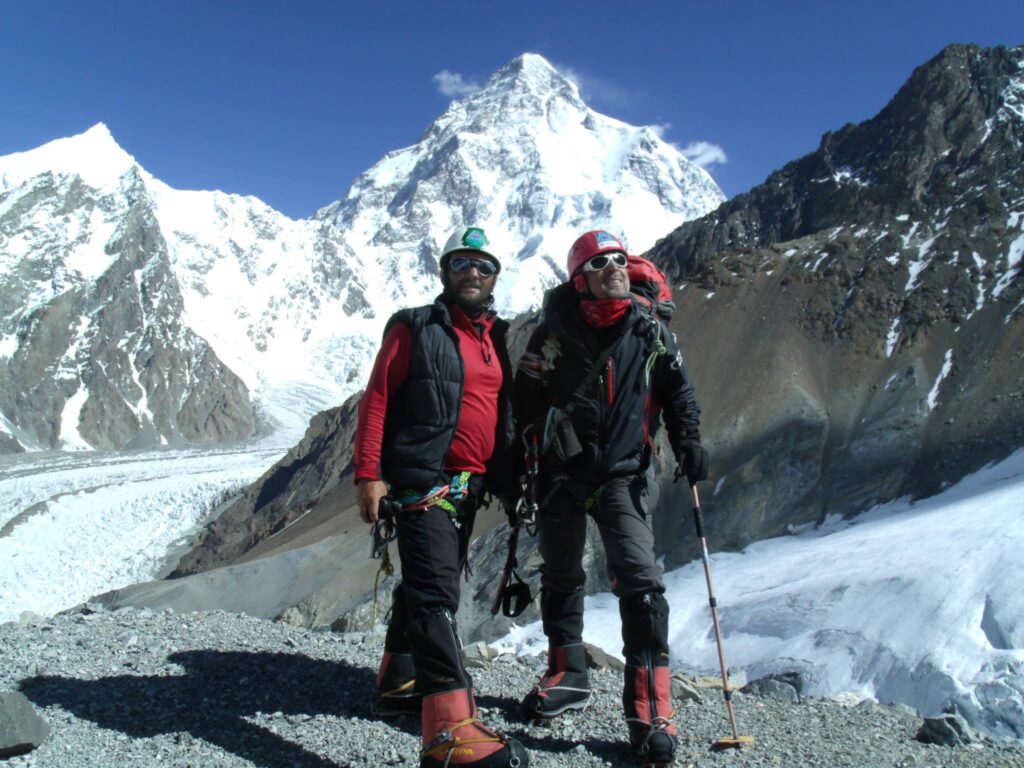
MMK: Did you have your idol or mentor?
KH: When it comes to my climbing idols, I admire my instructor Hubert Mayehofer, Austrian Mountain Guide. He played a big role in my life …. thanks to him I learned a lot.
Stand where no one has ever stood
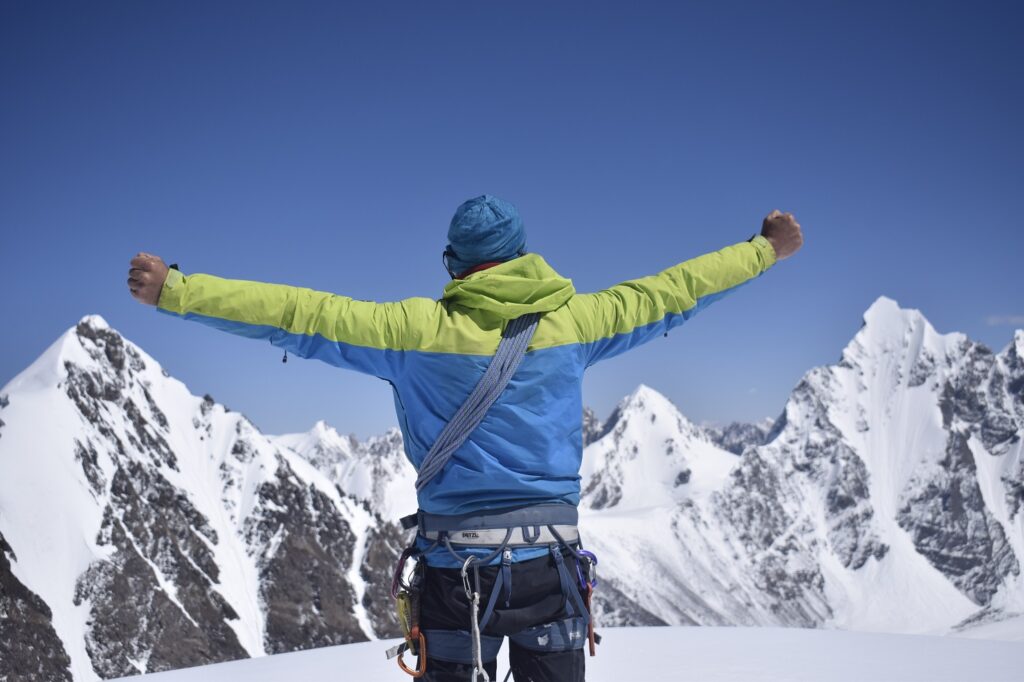
MMK: Pakistan has quite lot of unclimbed and unnamed peaks over 5.000 meters above sea level in Pakistan. You’ve been organizing trips to them for years. How did it start?
KH: Yes, there are hundreds of unclimbed peaks above 5000m and I dreamed of climbing them. We started climbing virgin peaks in 2000 when I came back from Nepal after finishing my AMD.
The first peak was Kuksil IV with a height of 5848m. I led a team from an alpine club in Pakistan there. It was a challenging task. We were on an unknown peak, we had to find our way, climb safely and descend safely, but we made it.
MMK: How many of them have you reached and named?
KH: I’ve climbed 7 unclimbed peaks, and more to climb.
MMK: Surely you have your favorite places in the mountains, the most magical places. Could you tell us what these places are?
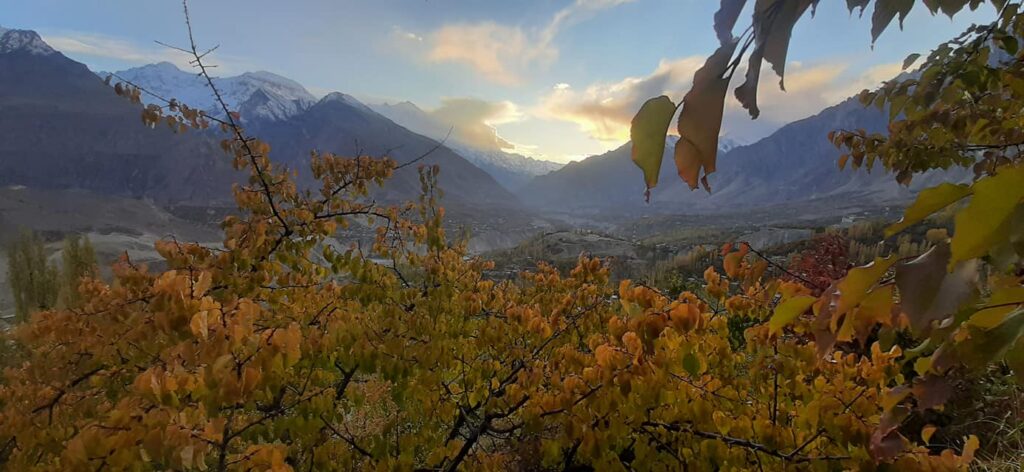
KH: There are so many places that are my favourites, but I love the Hunza valley. Not because I was born here. Hunza is surrounded by 9 peaks that are over 7000 m. I can see several of them from my bedroom. It’s a wonderful feeling when I woke up and see the sun rise slowly on Rakaposhi, illuminating the peaks, illuminating them with a pale pink glow. It is magic. I’m very fortunate to be here. I only tried to climb one of them once. I was a member of the French Pakistani expedition on Diran Peak 7260 m. We climbed to 6400 m, but bad weather forced us to abandon the mission. This peak is called the home of avalanches.
It was an August afternoon in 2005 when the avalanche hit. We were at camp 2, having lunch, and suddenly we heard a sound of blast: boom! When I opened the tent zipper, I saw clouds around the tent and wet snow flowing down the slope, how did we survive? Fortunately, we pitched our tent under a serac, that was the reason we were not scribbled to hell of crevasse.
This is Pakistan: Expect unexpected.
MMK: You run your own trekking/ climbing agency. You organize both trips – to the tops of the mountains and trekking in Karakoram. Tell us what should someone who wants to go trekking in Karakoram consider? Are there people you would definitely advise against such a trip?
KH: When we talk about Pakistan, not many people know anything about it, but when we talk about the Karakoram, people realize that it’s a mountain range in Pakistan. The media also do not provide all information to the West, they only show one side of the postcard. We know that we are dealing with many problems that have been created in part by the Americans. It has a big impact on tourism in Pakistan.
There are unique places in Pakistan that have the potential to attract foreign tourists. We also have places that are difficult to move around for political reasons. The whole world needs peace!
Anyone can travel to Pakistan, except for Israeli nationality.
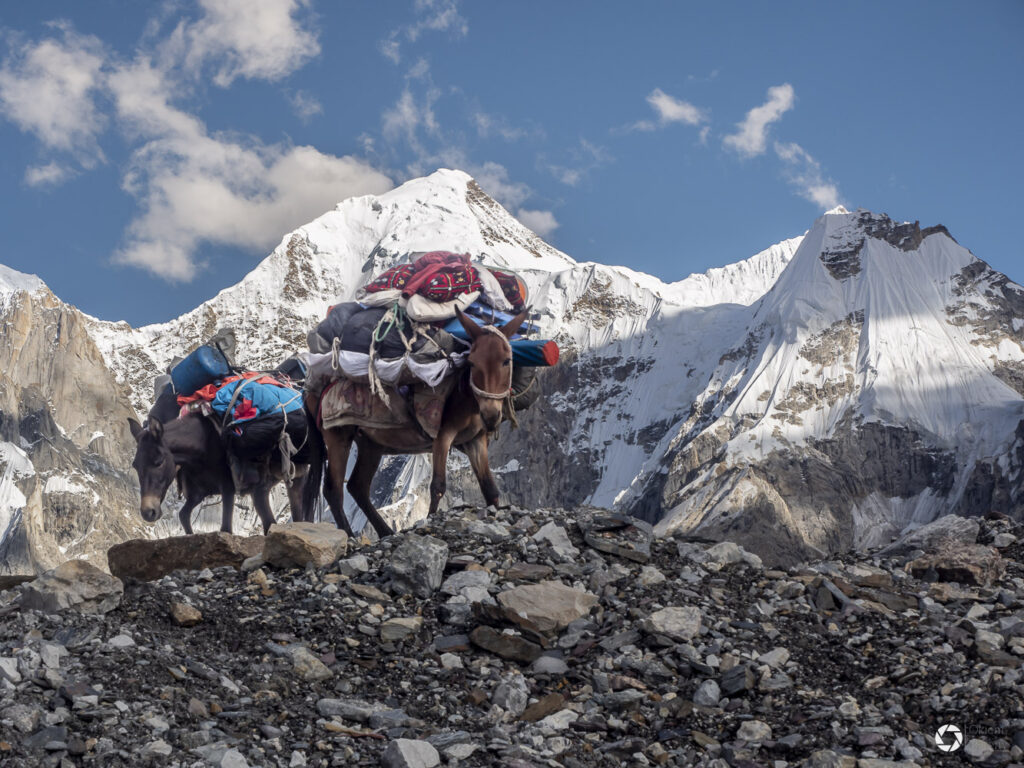
There is also a second aspect. If you decide to come and trek, e.g. to the K2 base camp, you have to take into account nuisances. Such trekking is a daily several-hour walk on the glacier. Up and down. There is no tourist infrastructure, discomfort. Some people underestimate the hardship of this route and then there are problems, illnesses, dissatisfaction. Similarly with food – on trekking it is difficult to choose a menu for everyone, it is not a five-star hotel. We have a vegetarian option, but the basis is meat, we are unable to prepare meat, vegetarian, vegan, gluten-free, lactose-free and god knows what other dishes. Another issue – in Pakistan you need to have some patience and understanding that not everything goes as planned. Sometimes we encounter a road blockade for several hours, other times a landslide makes us change our route. I always tell my groups: This is Pakistan: Expect unexpected.
That I am still alive I owe to wise decisions in the mountains.
MMK: What do you pay the most attention to when organizing trekking? Unexpected situations have certainly happened to you more than once – can you tell us about the most interesting one?
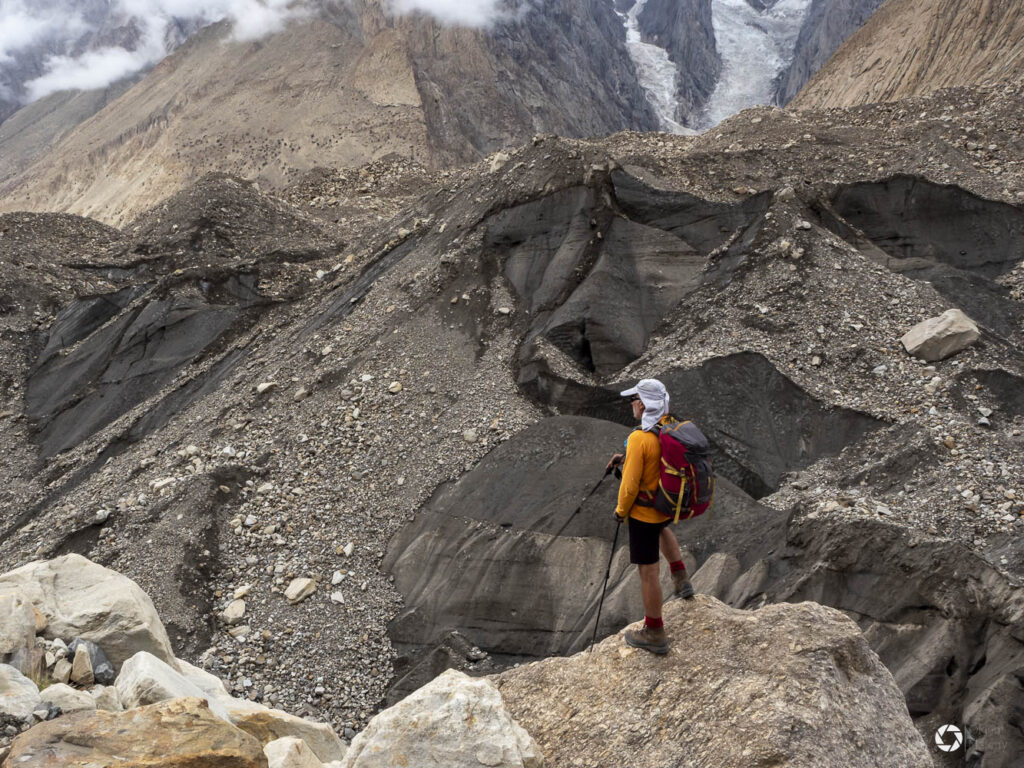
KH: Safety is first, minimize risk! – this is our slogan. Working as a guide in the Karakoram, every and each step we face unexpected situations, we are living here, and we know how to handle the difficult situation.
One such situation happened last year. I was leading a large group consisting of 16 members of an international team, mainly from Poland, Canada, USA and China. We planned to take a shortcut and avoid the old route. However, the path was cut off by a mud slide. We could turn back or start crossing the muddy riverbed. I immediately decided to go back and follow the old trekking route. Our porters began to make their way through deep mud, but I refused to go this route and we turned back to the camp in Paju. Of course it was a difficult time, it was raining and cold, the members of the expedition were angry with me that we turned back and again were forced to traverse the Baltoro Glacier. In our group there were people with quite different physical condition, as well as those who fell ill during trekking, had fever, were weak. What would happen if someone drowned while crossing the riverbed, which was constantly filled with mud? Who would be to blame? I am aware of the risk of crossing the river and turning back. The tour leader was angry and occasionally and screaming at me saying I didn’t care about the group. However, most of the members were glad we didn’t cross the mud and the river. I was sure we would have difficulties during the crossing. And that’s why I led everyone, safely, back.
That I am still alive I owe to wise decisions in the mountains.
I was invited to the international winter expedition to Nanga Parbat 2018/2019. A best friend from Shimshal who climbed K2 in 2014 called me and asked if I would like to join the international winter expedition to Nanga Parbat. I told him to wait a few hours, I have to think. After a few hours, I called back with the information that I would join this expedition, but as a climber, not as ahigh-altitude porter. Both the Italian and British climber accepted my proposal.
We met in Chilas and prepared the equipment for this difficult mission. Our route was through Mummery’s Rib, which I called the death zone. We set up camp 3 just below Mummery’s Rib, planned to climb higher and fix a few hundred meters of rope for the quickest climb the next day. But that couldn’t happen because of the bad weather that forced us to descend down to the base camp.
The bad weather lasted for 2 weeks and tons of snow fell on Nanga Parbat. Forecasts from various channels said that we can count on a good weather window in February. We tried to climb again on January 25th. It took us 10 hours to reach the base camp, the fresh snow was up to our waists. We crushed and pushed fresh snow. When we got to Camp 1, we found tents were collapsed. It took us 2 hours to dig it out. The small tent where I left my gear was blown away by the storm. We couldn’t find anything. At that moment, I decided to abandon the expedition, and go back to home.
I returned to base camp the next morning and waited for the other two climbers: Daniele Nardi and Tom Ballard. I watched their activity over Camp 1 with binoculars. They arrived at Camp 3 around 1:00 pm and started digging where Camp 3 should be, but couldn’t find it. After they returned to the base camp, I told them that I had decided to give up the expedition, that I could not climb this peak in such conditions. They both tried to force me to stay, but it was not possible for me to try again under these conditions. A lot of people said I was scared, but it wasn’t like that. I wasn’t scared, I didn’t want to risk my life.
After 2 weeks I have received an extremely sad news that Daniele and Tom had lost over camp 3 approaching camp 4. They have had caught in a snowstorm and couldn’t move anywhere; they stay there forever. RIP!
if no regulations are introduced from above and radical changes are not introduced, not only the glaciers in Karakoram will disappear
MMK: We live in the time of climatic catastrophes and diametrically changing climate. Tell us what changes have you observed in the mountain over the last few years.
KH: Because of global warming, our glaciers are changing a lot. The Karakoram glaciers are melting fast. I saw it while trekking last year, in 2022, I climbed the old path I used to trek in Baltoro in 1999. The glacier has changed immensely, the height of Baltoro Glacier melted approximately 8m I also saw big chunks floating in the river. Things like this didn’t happen 5 years ago, it’s absolutely disturbing. We must protect our glaciers. These changes are accelerating. The Baltoro Glacier is now about 150 meters shorter than it was at the beginning of the 20th century. The Biafo Glacier has shortened by 3.5 km. Maybe it would be a good idea to mark the level of the glacier on the rocks every year, and set up boards with old, archival photos, so that people from all over the world can see how quickly our glaciers are disappearing.
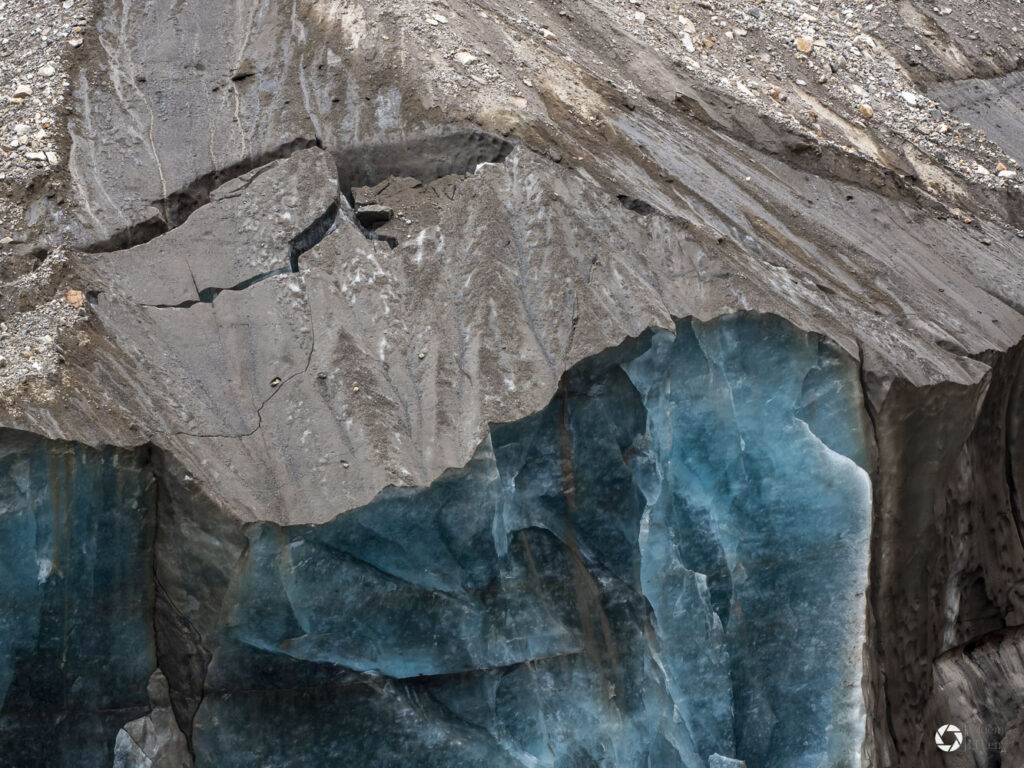
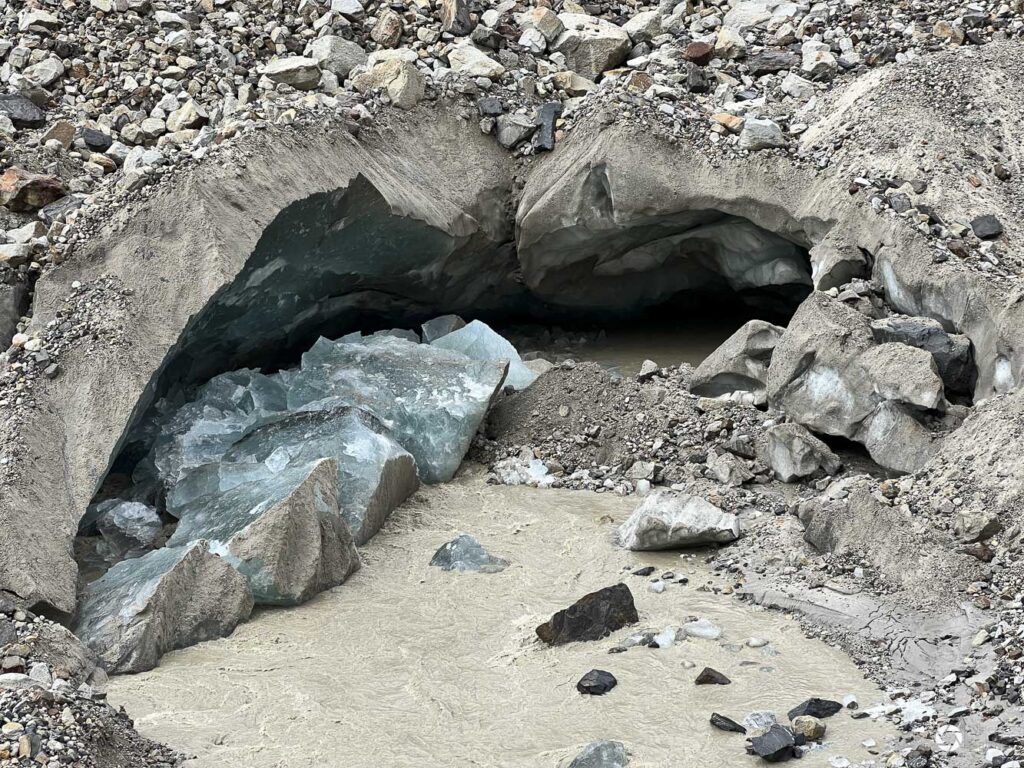
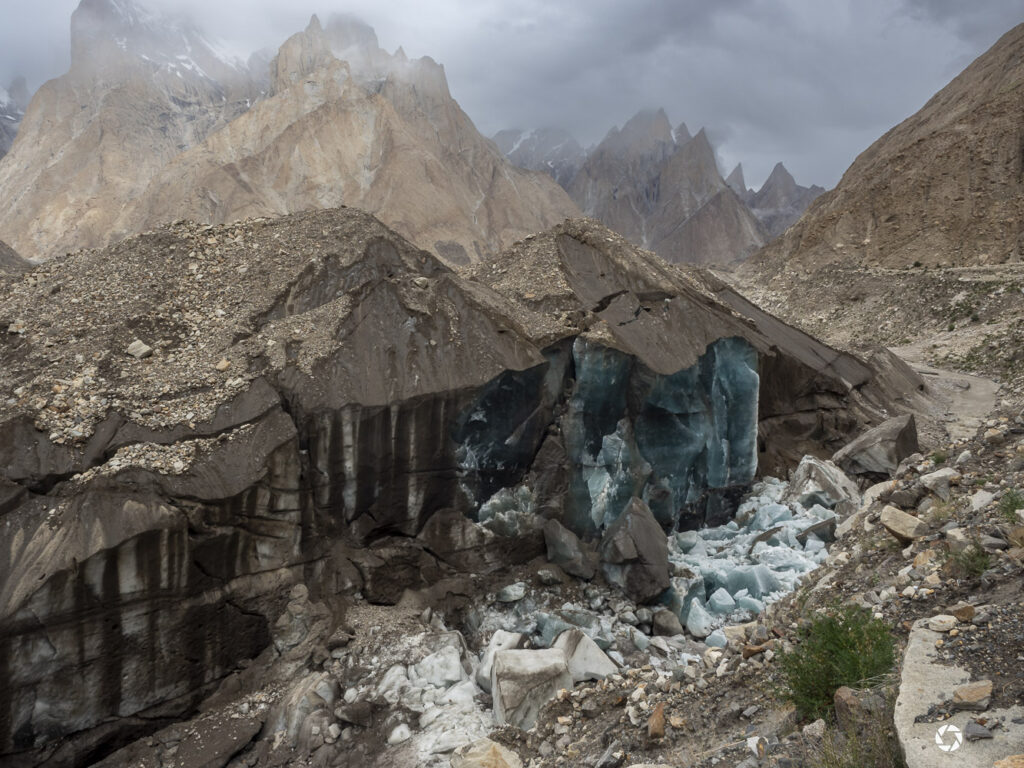
MMK: And speaking of ecological issues – what do you do to ensure that your trekking trips have the least negative impacton the area you visit?
KH: We need to reduce the number of trekkers and expeditions, gasoline generators should be banned. Of course, I make sure that there is no garbage or pollution left after my expeditions. Everything we bring with us, we also take with us. I also wonder, It should be like on Aconcagua, that expedition teams should also carry back their human waste from higher camps with them. Every year Karakorum is visited by more people, the conclusions are obvious.
However, all this does not have a big impact on these areas, it is the lower places, big cities that should start to care. Industrial pollution is a big problem, unfortunately a lot of garbage is burned, some garbage ends up in rivers or other places, industrial chimneys provide toxic gases. We need European technology, smoke control, filters, system solutions. Not only us, but also the surrounding countries. The whole world should change its behavior, reduce carbon dioxide emissions, change habits. If we do not change our behavior, consumerism, throwing things away, littering with plastic, if no regulations are introduced from above and radical changes are not introduced, not only the glaciers in Karakoram will disappear.
I work in the mountains and I rest in the mountains. The mountains are my home and my love.
MMK: Paragliding, climbing, icefalls, trekking – and what else? What Does Karim do when he isnot climbing anywhere, trek or paraglide? Do youalsohaveanymundanehobbies?
KH: In my free time, when I’m not professionally climbing or doing trekking … I’m climbing for fun. In addition, I ride a mountain bike, run, swim, and for some time I have been paragliding. Winter is icefall time. We explore new icefalls and climb them. At home in Hunza I have my own garden, among other things, apricots grow there. I make jams out of them. I like this housework, but not for long. At home in Islamabad I have a climbing wall, I can train without leaving the house.
I also like to travel. I have visited some countries, although it is difficult for Pakistani citizens to travel. You need to get a visa, have invitations. This is tiring. But I was in Europe – I visited Austria, Germany, Italy, France, Hungary, Poland and Slovakia. I’ve also been to Turkey, USA, Thailand – of course I’ve been climbing everywhere. I like my job and I’m happy that I do what I do, I don’t have to sit behind a desk. My free time is combined with working time. I work in the mountains and I rest in the mountains. The mountains are my home and my love.
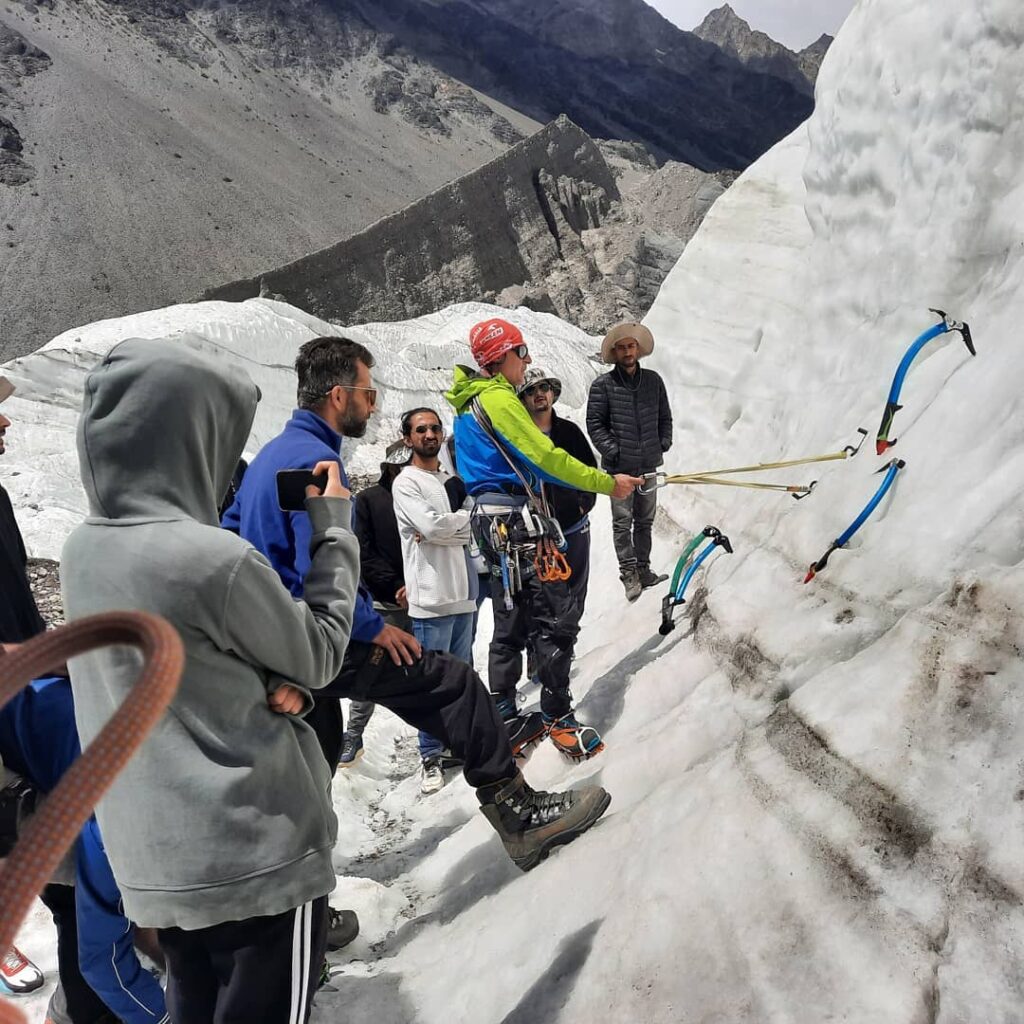
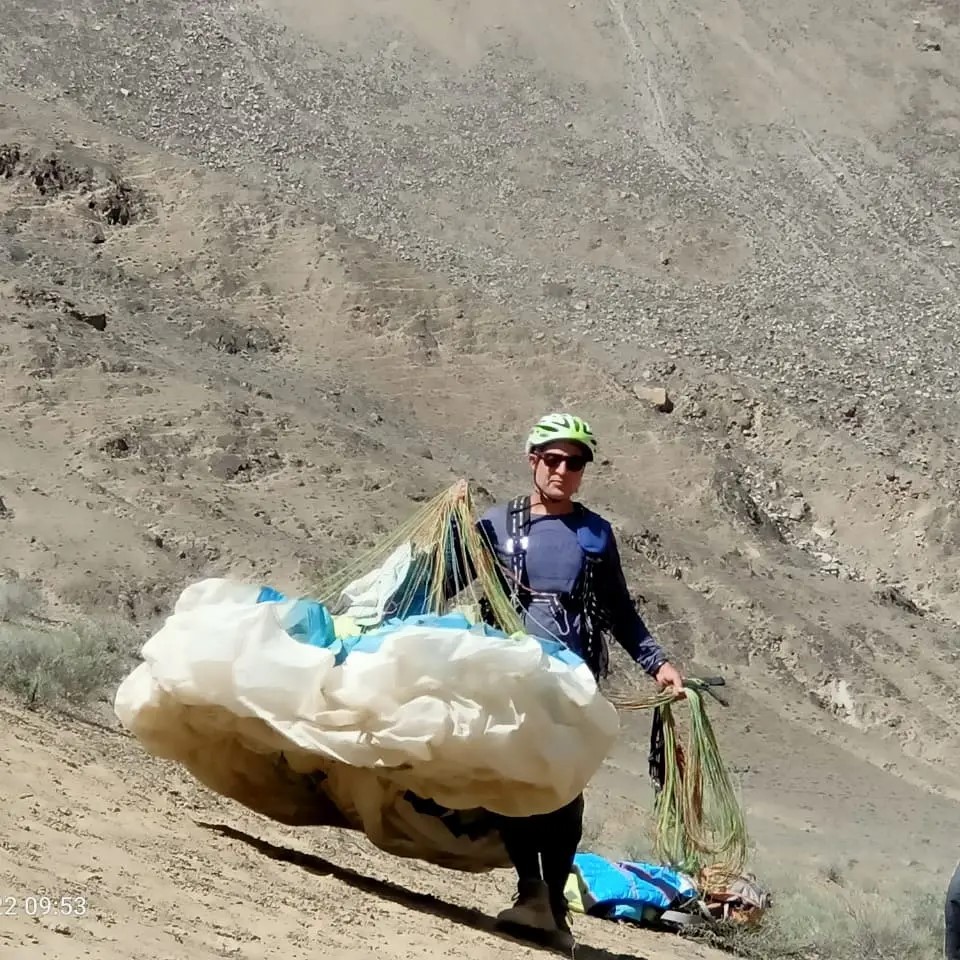
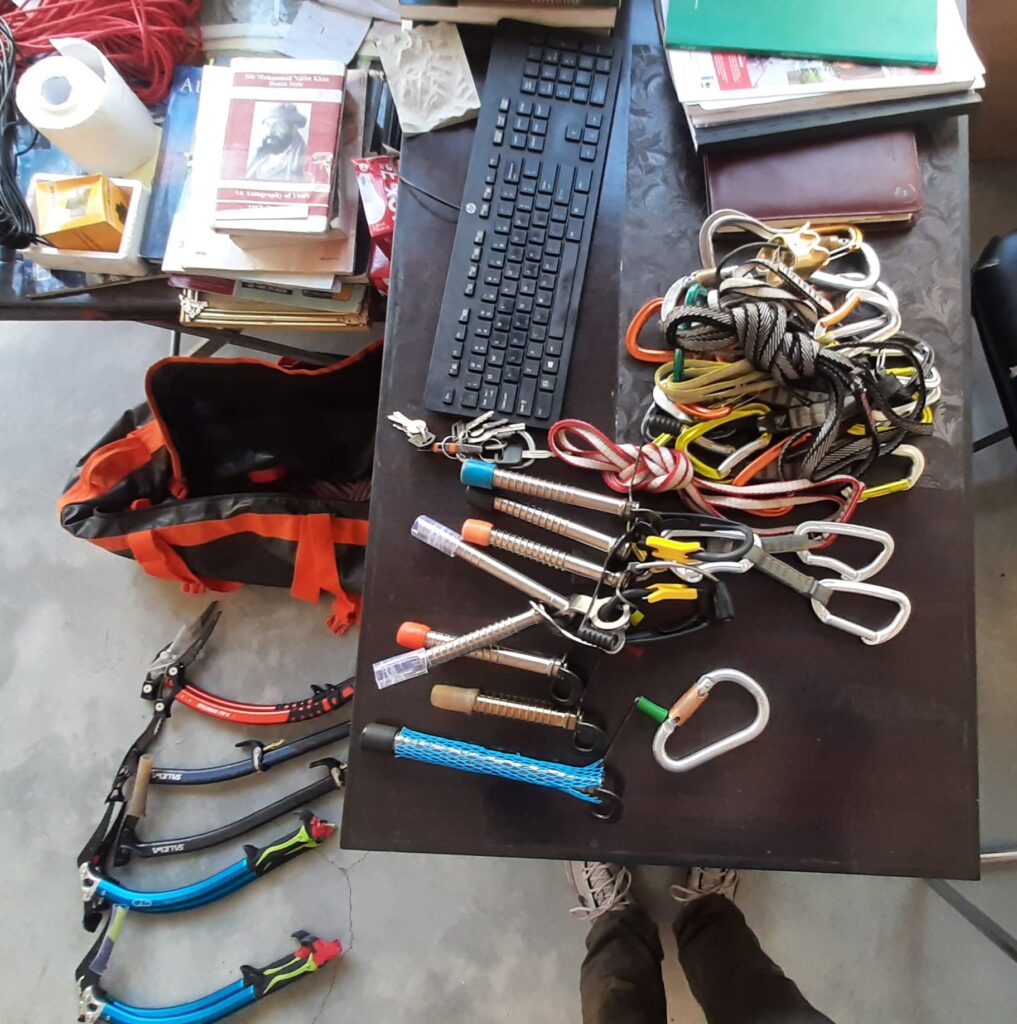
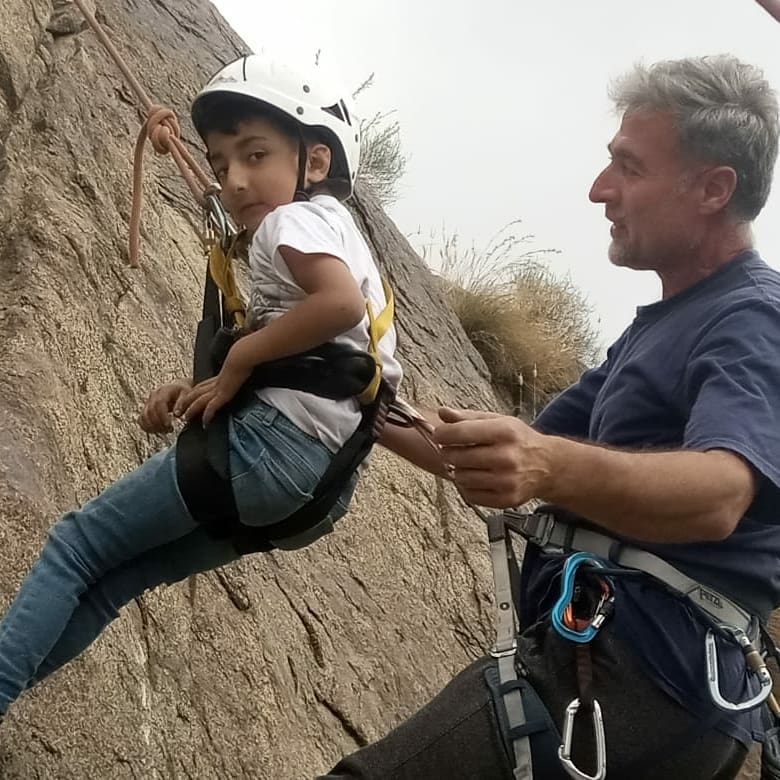
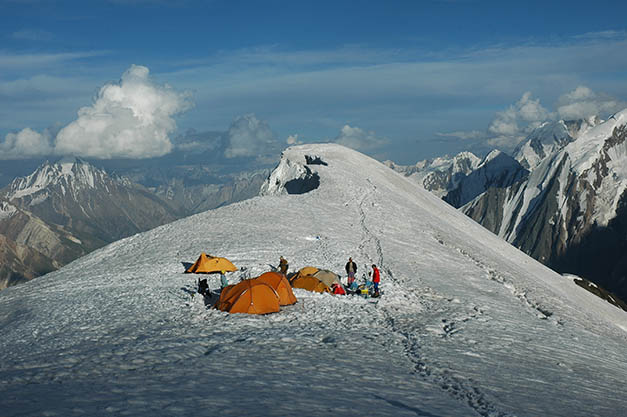
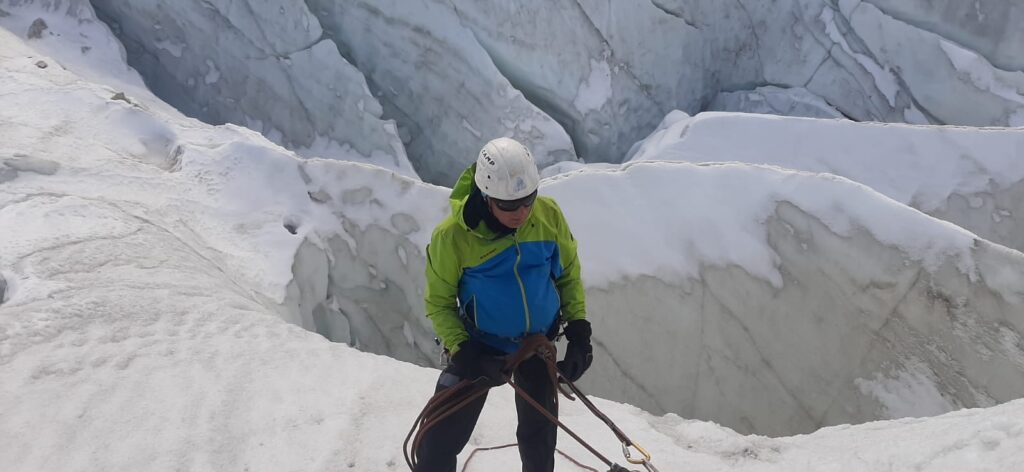
MMK: Where you admire the night sky above the Karakoram, you can see millions of stars, the milky way, zero light noise. This sky falls in memory. You can sit for hours and watchshooting stars – can you tell us your biggest mountain dream?
KH: Yes, that’s right. When we are sitting in a tent in Concordia, everything is happening before our eyes. I would like to try to climb K2 and Nanga Parbat again. As long as I can find a good time.
MMK: Thank you for the interview.
KH: Thank you for such long questions that brought me into a huge room of storytelling, refreshing old stories that were stored in old memory files. This is the best way to write a book, I should start writing it. A book that will help people understand Nature and experience an adventure.
MMK: You definitely should. In a few days, you’re going on an expedition to reach another unclimbed peak. I wish you good luck and I keep my fingers crossed for the success of the expedition and a safe return.
K.H. Thank you for your good wishes. I would like to invite your readers to get to know the offer of our trekking and expeditions to the Karakorum peaks on our Polish website: www.pakistanadventure.pl or in English: www.mountainsexpert.com.pk For readers of OkiemMaleny I have a small gift for the password: OkiemMaleny can get a 5% discount.
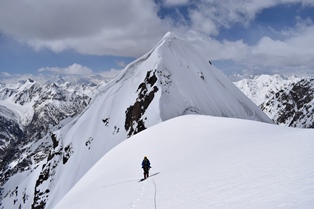
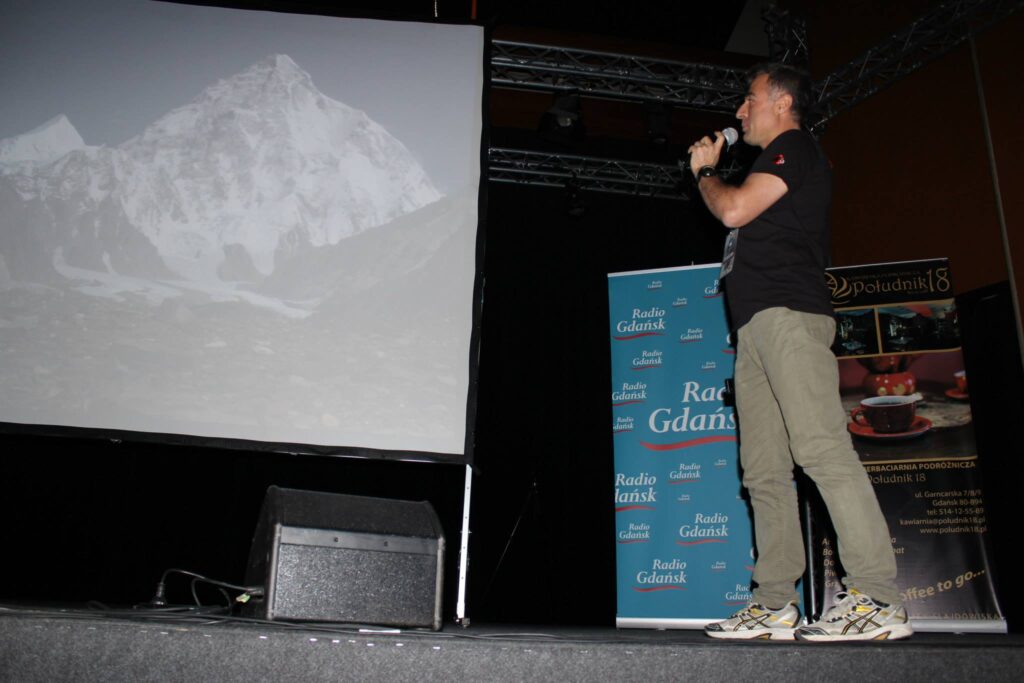
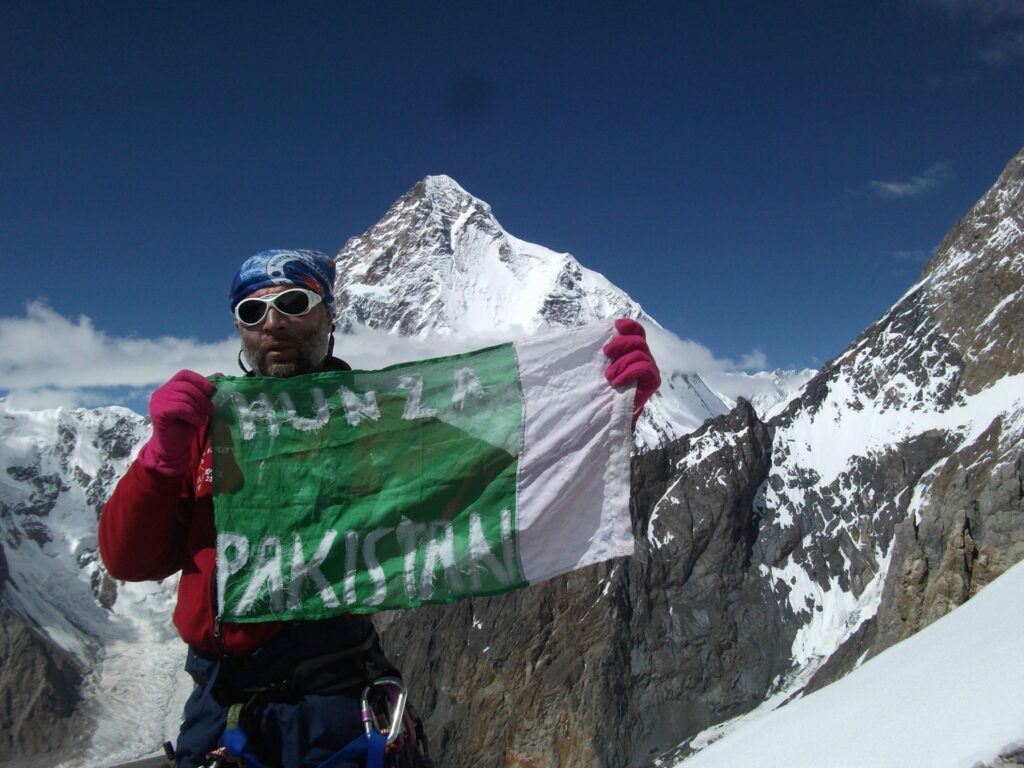
Thinking about a trip? Take a look at the gallery of the most beautiful photos from the trek to the K2 base camp.
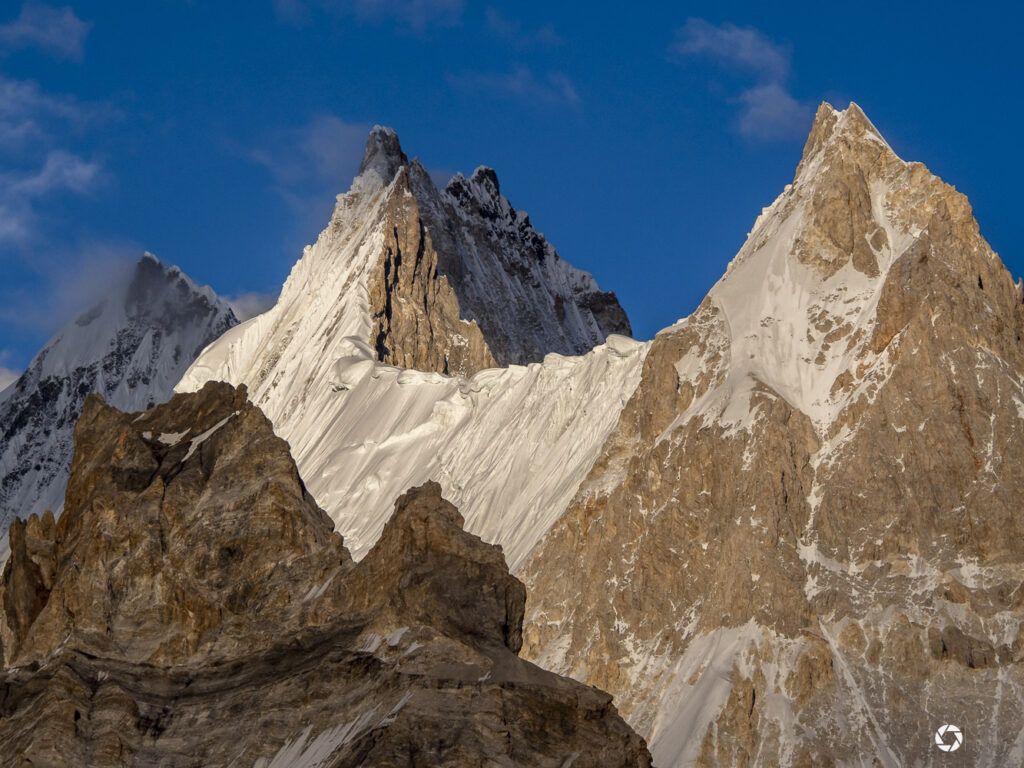
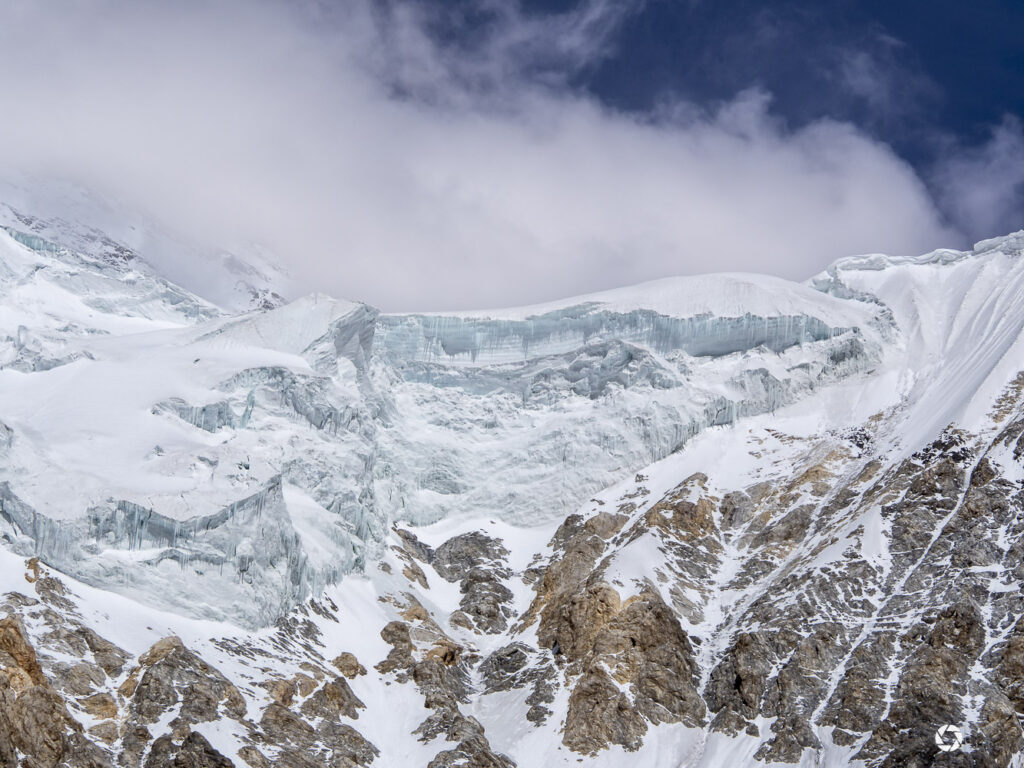
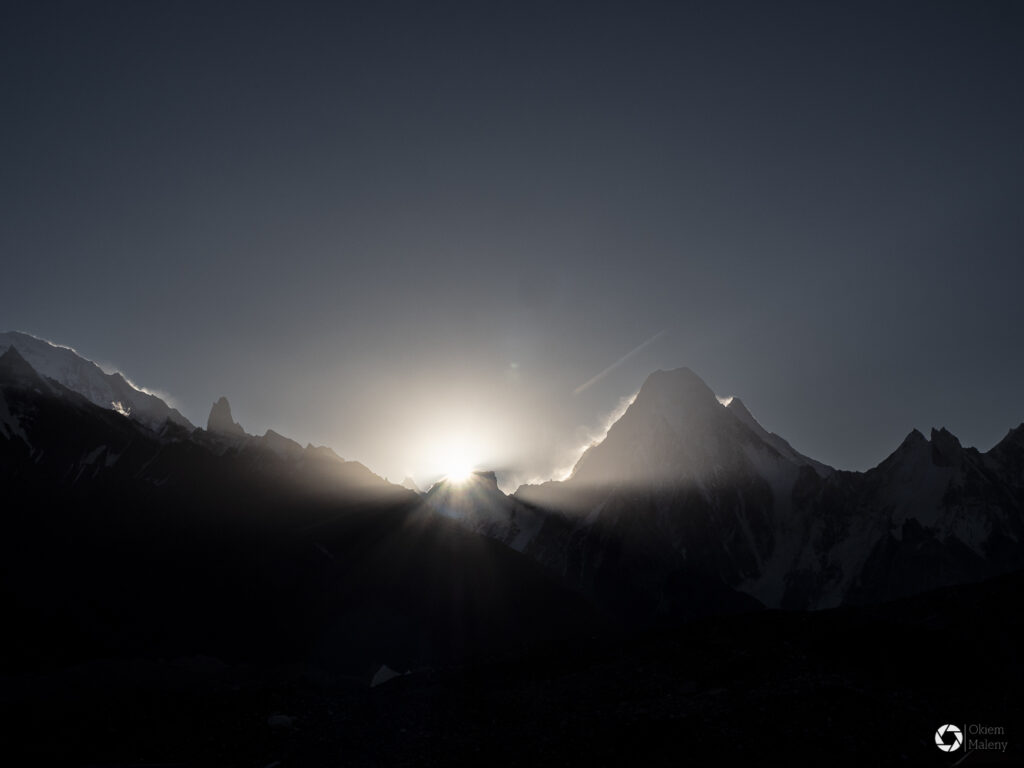
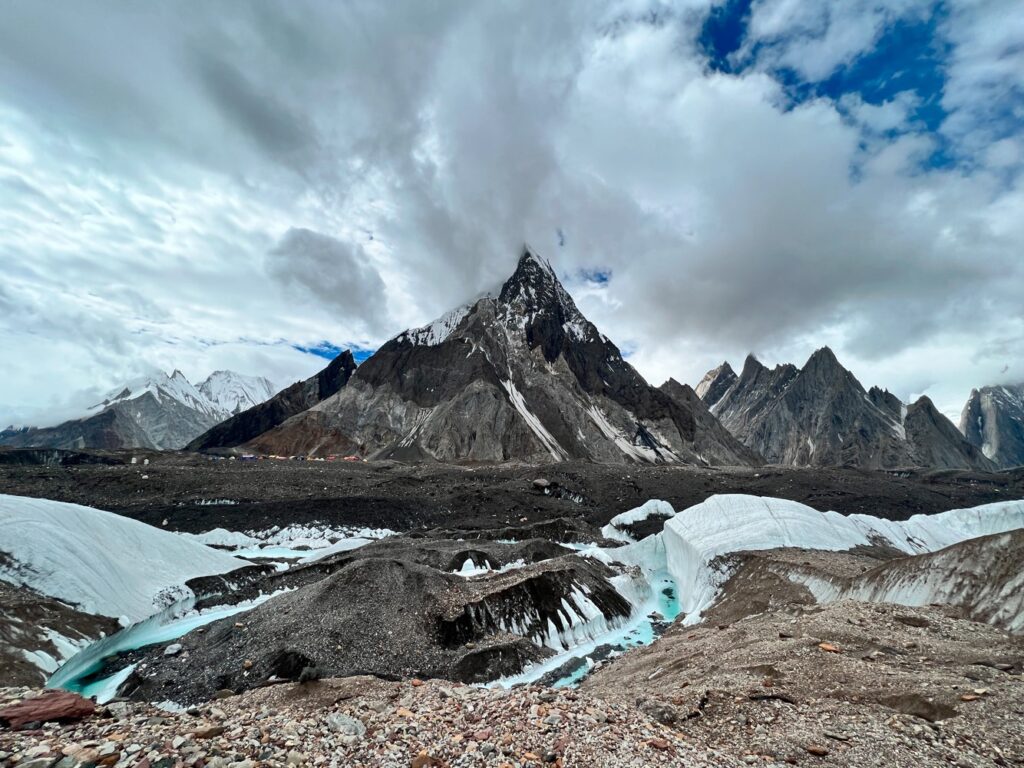
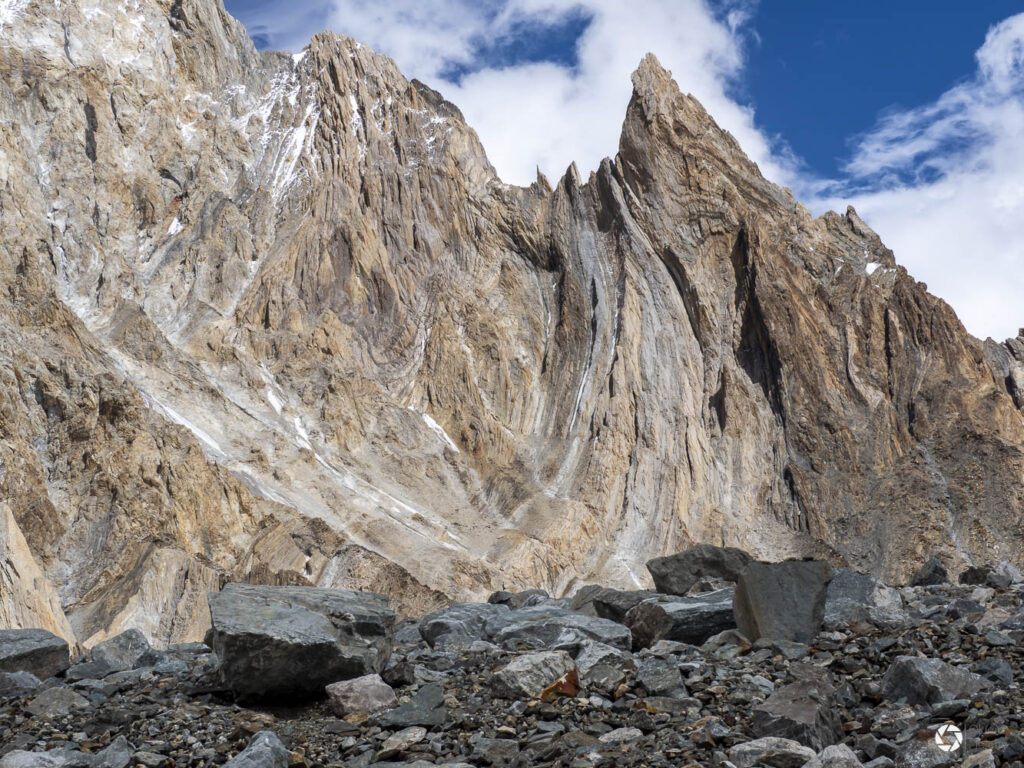
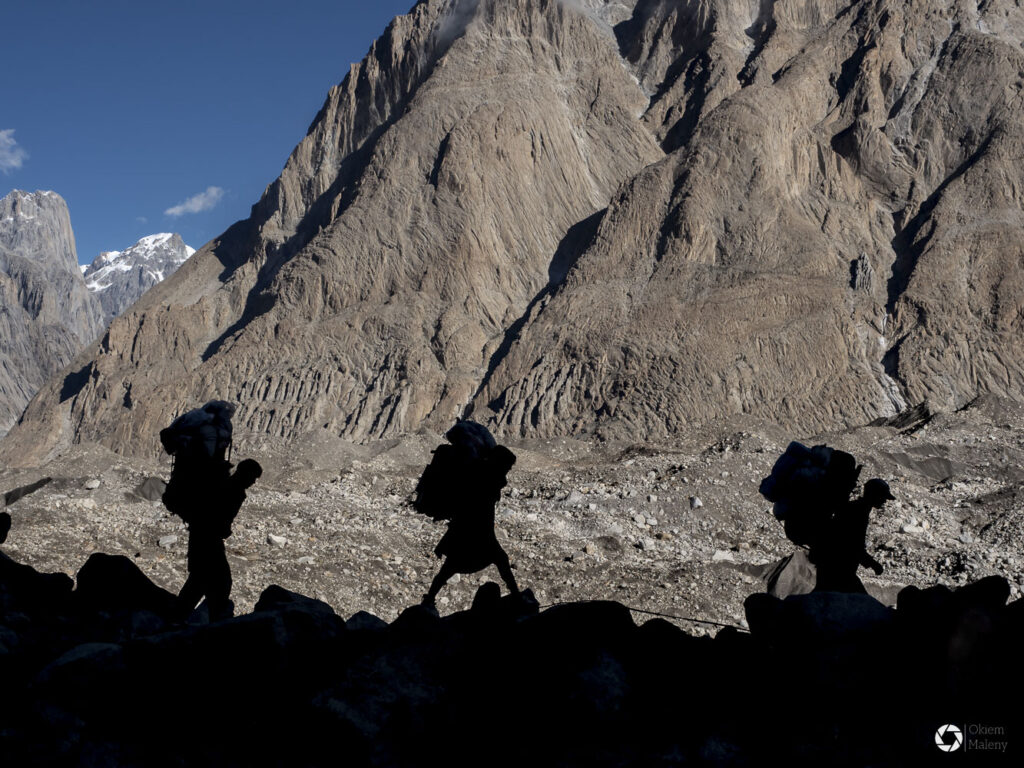
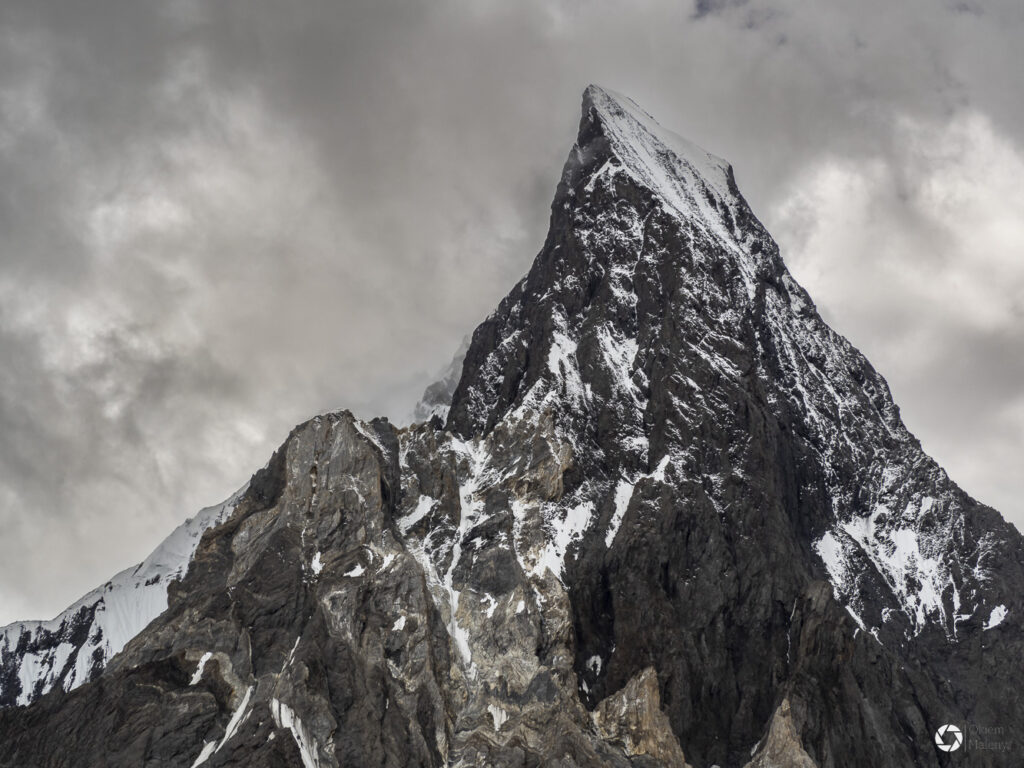
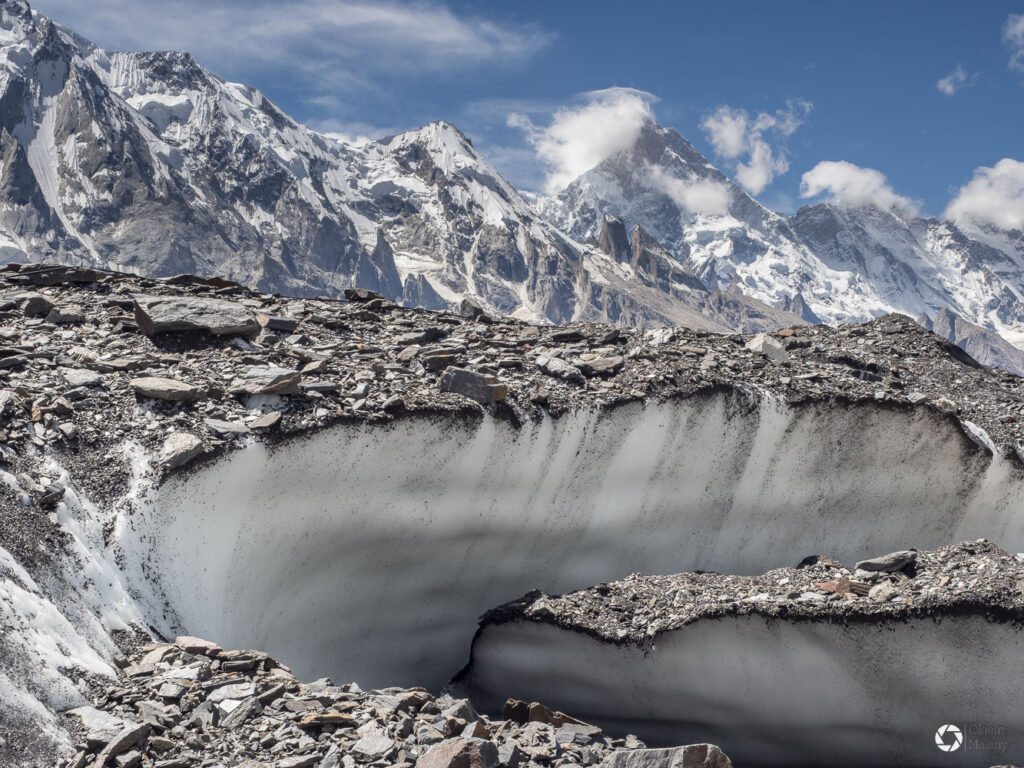
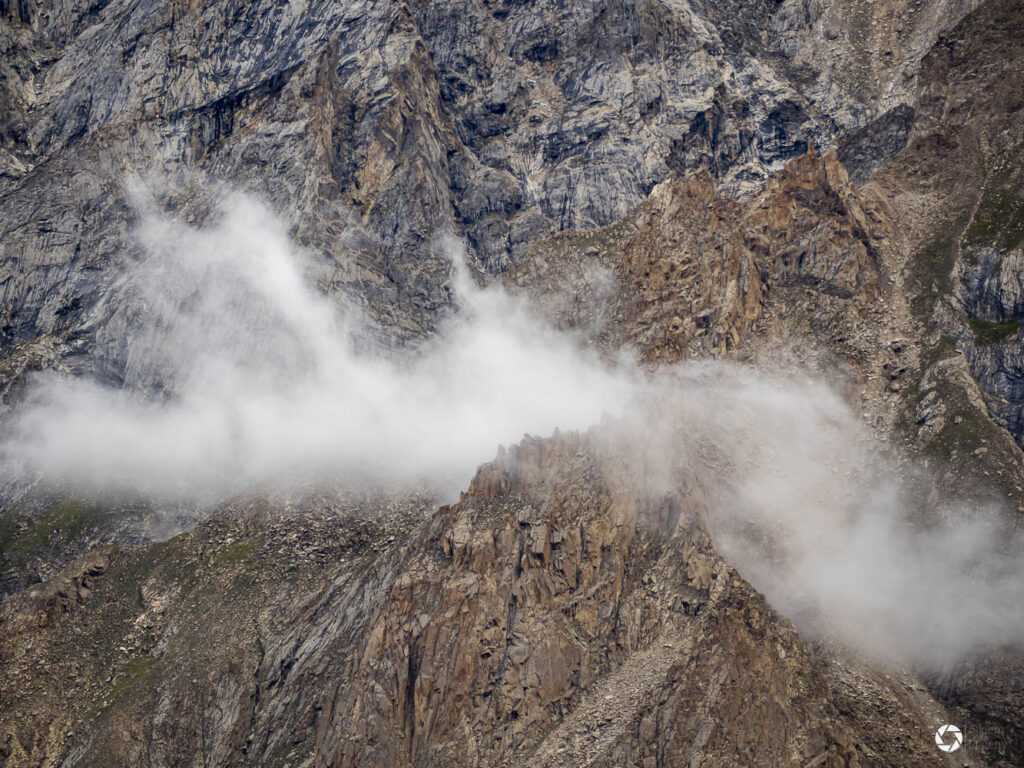

1 komentarz
[…] Dziś gościem specjalnym Malenowych rozmów jest Karim Hayat – wspinacz, zdobywca Broad Peak, przewodnik po Karakorum i właściciel Pakistan Mountains Expert – agencji organizującej trekingi w Karakorum i wyprawy na górskie szczyty. (English version) […]